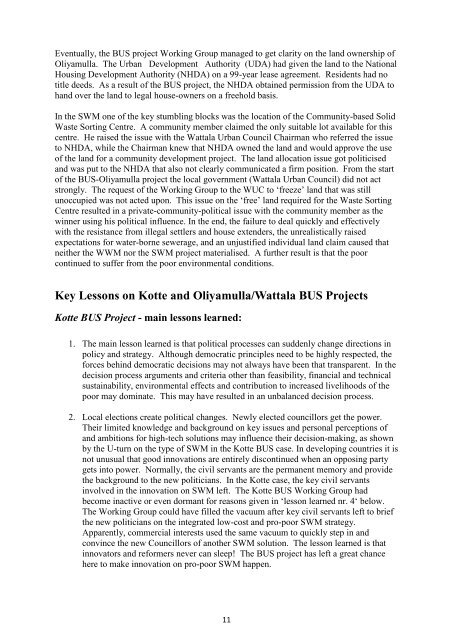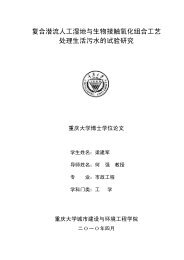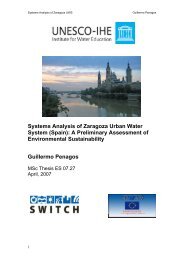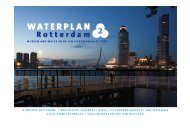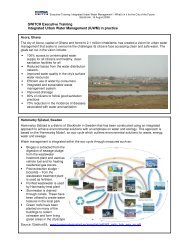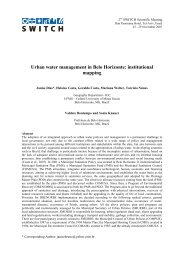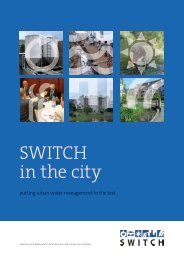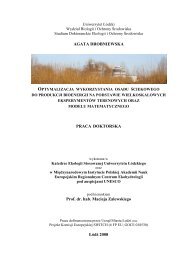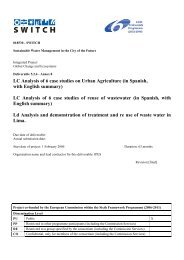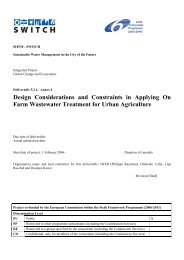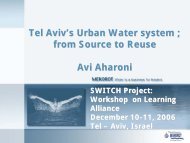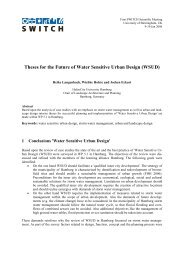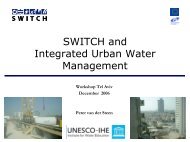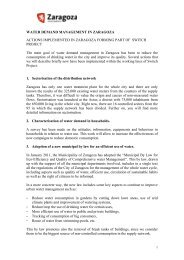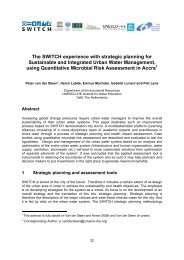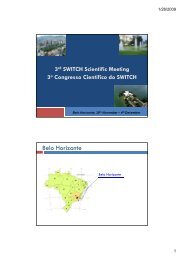Good practices for Social inclusion - Case studies and summary
Good practices for Social inclusion - Case studies and summary
Good practices for Social inclusion - Case studies and summary
Create successful ePaper yourself
Turn your PDF publications into a flip-book with our unique Google optimized e-Paper software.
Eventually, the BUS project Working Group managed to get clarity on the l<strong>and</strong> ownership of<br />
Oliyamulla. The Urban Development Authority (UDA) had given the l<strong>and</strong> to the National<br />
Housing Development Authority (NHDA) on a 99-year lease agreement. Residents had no<br />
title deeds. As a result of the BUS project, the NHDA obtained permission from the UDA to<br />
h<strong>and</strong> over the l<strong>and</strong> to legal house-owners on a freehold basis.<br />
In the SWM one of the key stumbling blocks was the location of the Community-based Solid<br />
Waste Sorting Centre. A community member claimed the only suitable lot available <strong>for</strong> this<br />
centre. He raised the issue with the Wattala Urban Council Chairman who referred the issue<br />
to NHDA, while the Chairman knew that NHDA owned the l<strong>and</strong> <strong>and</strong> would approve the use<br />
of the l<strong>and</strong> <strong>for</strong> a community development project. The l<strong>and</strong> allocation issue got politicised<br />
<strong>and</strong> was put to the NHDA that also not clearly communicated a firm position. From the start<br />
of the BUS-Oliyamulla project the local government (Wattala Urban Council) did not act<br />
strongly. The request of the Working Group to the WUC to ‗freeze‘ l<strong>and</strong> that was still<br />
unoccupied was not acted upon. This issue on the ‗free‘ l<strong>and</strong> required <strong>for</strong> the Waste Sorting<br />
Centre resulted in a private-community-political issue with the community member as the<br />
winner using his political influence. In the end, the failure to deal quickly <strong>and</strong> effectively<br />
with the resistance from illegal settlers <strong>and</strong> house extenders, the unrealistically raised<br />
expectations <strong>for</strong> water-borne sewerage, <strong>and</strong> an unjustified individual l<strong>and</strong> claim caused that<br />
neither the WWM nor the SWM project materialised. A further result is that the poor<br />
continued to suffer from the poor environmental conditions.<br />
Key Lessons on Kotte <strong>and</strong> Oliyamulla/Wattala BUS Projects<br />
Kotte BUS Project - main lessons learned:<br />
1. The main lesson learned is that political processes can suddenly change directions in<br />
policy <strong>and</strong> strategy. Although democratic principles need to be highly respected, the<br />
<strong>for</strong>ces behind democratic decisions may not always have been that transparent. In the<br />
decision process arguments <strong>and</strong> criteria other than feasibility, financial <strong>and</strong> technical<br />
sustainability, environmental effects <strong>and</strong> contribution to increased livelihoods of the<br />
poor may dominate. This may have resulted in an unbalanced decision process.<br />
2. Local elections create political changes. Newly elected councillors get the power.<br />
Their limited knowledge <strong>and</strong> background on key issues <strong>and</strong> personal perceptions of<br />
<strong>and</strong> ambitions <strong>for</strong> high-tech solutions may influence their decision-making, as shown<br />
by the U-turn on the type of SWM in the Kotte BUS case. In developing countries it is<br />
not unusual that good innovations are entirely discontinued when an opposing party<br />
gets into power. Normally, the civil servants are the permanent memory <strong>and</strong> provide<br />
the background to the new politicians. In the Kotte case, the key civil servants<br />
involved in the innovation on SWM left. The Kotte BUS Working Group had<br />
become inactive or even dormant <strong>for</strong> reasons given in ‗lesson learned nr. 4‗ below.<br />
The Working Group could have filled the vacuum after key civil servants left to brief<br />
the new politicians on the integrated low-cost <strong>and</strong> pro-poor SWM strategy.<br />
Apparently, commercial interests used the same vacuum to quickly step in <strong>and</strong><br />
convince the new Councillors of another SWM solution. The lesson learned is that<br />
innovators <strong>and</strong> re<strong>for</strong>mers never can sleep! The BUS project has left a great chance<br />
here to make innovation on pro-poor SWM happen.<br />
11


